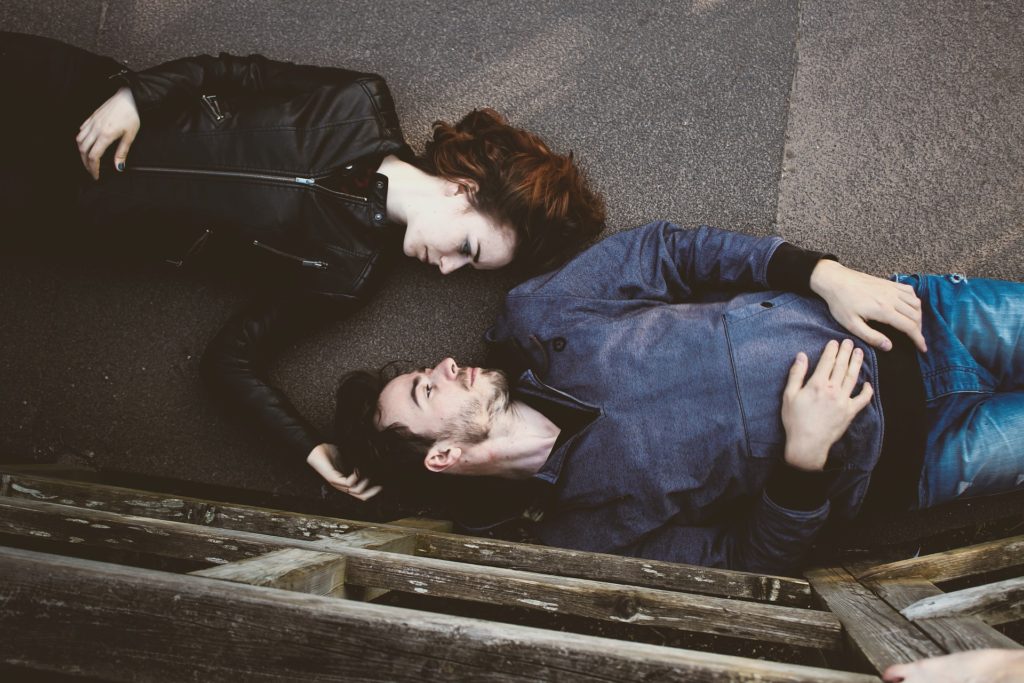Couples Rehabilitation Centers
Behavioral Couples Therapy (BCT) is designed for married or cohabiting people looking for assistance for alcoholism or drug abuse. BCT treats the substance abusing client together with their spouse or live-in partner. The function of BCT is to build support for abstinence and to improve relationship functioning. BCT promotes abstaining with a “recovery agreement” that includes both members of the couple in an everyday routine to reward abstaining. BCT improves the relationship with techniques for increasing favorable activities and improving interaction. BCT fits well with twelve step or other self-help groups, one on one or group drug abuse counseling, and medically assistance treatment. Research study reveals that BCT produces higher abstinence rate and better relationship operating than common individual-based treatment, and decreases social problems, domestic violence, and psychological issues of the couple’s children. Research study proof supports broader use of BCT. to learn more about drug treatment for married couples or for unmarried couples contact our helpline now.

Couples in which a partner or both abuses drugs or alcohol are often really dissatisfied, in fact, these partners are frequently more dissatisfied than couples who do not have issues with alcohol or other drugs, but who seek help for marital problems. As drinking or substance abuse worsens, it begins chipping away at the couple’s relationship, taking its toll by developing a psychological distance in between the partners that is challenging to conquer. These couples likewise report that they fight and argue a lot, which often can become violent. It is often the battling itself that can develop an environment or situation where the partner with the drinking or drug issues uses these substances to reduce his/her tension. When the substance use eventually turns into one of the primary factors for fighting or arguing, exactly what we see happen is a vicious circle, in which substance usage triggers dispute, the dispute leads to more substance usage as a way of decreasing tension, conflict about the drug/alcohol usage intensifies, more drinking or substance abuse occurs, and so on. Couples where a partner abuses drugs or alcohol have an extremely hard time leaving this down spiral; fortunately, we also understand of tested methods to help these relationships and, in the process, assist the substance abuser recuperate. So, if you or your partner is having a problem with alcohol or other drugs, there is hope.
It has long been known that marital relationships (or other long-lasting, dedicated relationships) and substance abuse do not mix. Having a partner who drinks excessively or uses drugs is very much like tossing a stone into a still pond, the impacts ripple out, and affects everyone close to them. In the case of a partner who uses drugs or drinks excessively, the impact is felt by his/her children, loved ones, good friends, and colleagues.
If only one member of the couple goes to rehab, the other partner’s continued drug abuse can make it much harder for the first partner to prevent relapsing into substance abuse after treatment is over. Nevertheless, not getting assistance can produce numerous risks for the couple, such as relationship challenges, financial loss, and even unfavorable impacts on physical and psychological health for both partners.
Nevertheless, if both partners want to go through rehabilitation at the same time, it can help them to learn to recovery together. When couples go to rehab together, it can provide tools to handle their own dependencies comprehending everyone’s specific triggers and cravings and learning to avoid relapse. It can also be helpful in improving the relationship, managing concerns such as codependence and allowing, and producing a new relationship dynamic that supports each partner alone and together in keeping healing.
Couples Addiction
Relationships are hard enough, when one or both partners are abusing drugs or alcohol it can be recipe for disaster. Studies have shown that in relationships where women are abusing substances or alcohol they more than two times likely to have a partner that abuses as well.
Even if the couple is devoted to making their relationship work, the substance abuse itself can harm the relationship. Some of the warning signs that drugs or alcohol is affecting a relationship negatively:
- Consistently covering up for a partner who has been drinking or using drugs too much by making up excuses for him or her, such as calling them in sick to work to their employer.
- A partner reporting that she or he consumes or uses drugs to lower stress or tension related to arguments and battles in the home about drugs or alcohol.
- Constantly arguing about drugs and alcohol or things associated with drugs or alcohol such as staying out late, not meeting daily responsibilities in home and financial concerns.
- Laying hands on one another when upset or angry or episodes of domestic violence when drinking or using drugs.
- Drinking and substance abuse is the only or among the few things the partners like to do together.
- Finding that a person or both partners need to be drunk or high to show affection of love or to discuss the problems in their relationship.
- The relationship or family unit becomes isolated from friends and relatives to hide the substances abuse issues.
The relationship or household ends up being isolated from good friends and relatives to conceal the drinking or drug issue. Although most couples will not have all these danger signs, if even among these exists in your marriage or relationship, it indicates that it may be time for you to evaluates the relationship and think of making it much better. That is most likely to mean that drinking and drug use will need to stop and the issues in the relationship will have to be determined and resolved. If you or your partner are showing indications of having a problem with drugs or alcohol and there are problems in the relationship, it is common to hope these things will take care of themselves in time. Regrettably, that rarely takes place. The much better thing to do is to get treatment as soon as possible, or a minimum of call and inquire about treatments that might be readily available to you. If you do not, the problems are most times worsen.
Circumstances that couple’s treatment may not be right for the partners to attend the same facility together:
- One member of the couple has distinct treatment needs that require a specialized facility.
- One partner has an interest in rehabilitation.
- There is constant domestic violence.
- There is an absence of devotion to continuing the relationship after rehabilitation
It is a difficult decision to get help when the partner is unwilling however, it is vital to bear in mind that a person can never ever make a loved one ready for change. In this scenario, getting into rehabilitation alone is a step that can be essential for the individual who is seeking help, and that might make the other member of the couple want to get help.

Couples United in Treatment
Couples frequently suffer from dependency together. They might form their relationships based on shared addictions, or they may develop them in the future. In either case, sharing a drug habit can make it exceptionally tough for either partner to maintain clean-time. The relationships and impact of other addicts is among the most typical causes of relapse in rehab patients single or coupled. The only method for either member of a co-addicted couple to attain sobriety is for both individuals to seek clinical drug and alcohol addiction treatment.
One option for getting Help together is to attend the exact same rehabilitation program. A variety of drug and alcohol treatment centers and facilities provide this alternative for couples who have a strong relationship and are equally dedicated to recovering from addiction. Motivation is a crucial element to having couples in therapy together. The Drug abuse and Mental Health Solutions Administration (SAMHSA) suggests an individual’s motivation to change and recovery from drug abuse is an important component in treatment, making the individual most likely to complete treatment with the focus and devotion necessary to preserve long-term recovery.
In a program where couples can go to together, this inspiration is reinforced through the couple’s continuous reaffirmation of dedication to one another. Lots of treatments for people who have a problem with alcohol and other drugs will include the partner in some way. Research has revealed that including partners in the treatment eventually can be extremely important in assisting the treatment succeed. It is very important that the problems in the relationship be dealt with, these issues do not go away since the drinking or substance abuse has stopped. Numerous couples are both stunned and disappointed that they continue to have lots of battles and arguments after the substance abuse has stopped. This illusion that taking away the drugs or alcohol will soon be revealed in drug and alcohol treatment. With the help of addiction experts, individualized and couples therapy the relationship will be treated as well as the addiction of both partners. As individuals are different so is every relationship a specialized program will be designed for each couple upon entering treatment.
Rehabilitation for drug dependency comes in numerous forms and much too often, does not come at all. When an addict doesn’t make every effort towards their own recovery, households of addicts will often encourage their loved ones to look for counseling or attend twelve meetings hoping to help changed the destructive behaviors. Although counseling and support groups are important to long term recovery most often this most effective after professional help with detox and drug and alcohol rehabilitation. Sadly, not enough individuals seek treatment on their own accord. There are several modes of treatment, medications to help with withdrawal or cravings, while there are several modes of rehab, and therapies that focus on dependency recovery. Completing treatment gives the individual or the couple the greatest success rate of long lasting sobriety.
Different Types of Treatment
- Intensive Out Patient (IOP) Lower Level of Care: Normally up to eight weeks from twelve to fifteen hours weekly with day or evening options.
- Partial Hospitalization Program (PHP) Higher Level of Care: Five days a week up to six hours a day, a very structured treatment plan.
- Inpatient Drug and Alcohol Treatment (Hospitalization or Residential) High Level of Care: Structured live-in environment for a minimum of twenty-eight days and up.
Objectives of Couples Therapy
- Developing much better communication abilities through active listening and direct, truthful expression of feelings and needs.
- Knowing healthy problem-solving abilities.
- Acquiring insight into the underlying psychological, mental and situational problems that fuel dependency, such as post-traumatic stress disorder (PTSD), and co-occurring mental disorders, and how to handle these challenges together.
- Enhancing everyone’s understanding of the illness of addiction.
- Acknowledging triggers and establishing relapse prevention abilities.
- Learning methods to better value and support each other.
- Couples therapy is customized to each client’s relationship concerns and consists of individualized resources and suggestions for the partner’s private recovery journey.
What to Expect in Couples Treatment
Living arrangements, and the other details of couple’s rehab can be different from one treatment center to the next, but many programs start with each partner going through medically supervised detox alone prior to moving into therapy together. While some inpatient centers enable a couple to share a space during treatment, others have different sleeping quarters. Couples rehab can also occur through an outpatient setting or with one partner as an inpatient, and the other getting involved as an outpatient.
Studies have shown that couples-based therapy results in greater abstaining, happier relationships and less separations than individual treatment, most of those studies have concentrated on relationships where only one partner has a drug or alcoholism Less studies have addressed the effectiveness of BCT in couples where both partners are suffering from a drug or alcoholism.
Couples rehab usually involves a mix of joint and individualized counseling along with education, and group therapy. A crucial part of BCT includes the establishment of “recovery contracts.” These are pledges each partner makes to one another to not use drugs or alcohol, and to support each other’s sobriety, in the very same “one-day-at-a-time” tradition that most 12-step programs promote.
Recovery is life long process. In treatment couples will receive the skills necessary to avoid relapse, learning new tools that they can rely on when they are having relationship difficulties. After drug and alcohol treatment, a solid aftercare program will be designed as part of the couples and individuals’ treatment program.
If you are married or in a relationship and both of you are abusing drugs or alcohol please contact our couples addiction helpline now and discuss treatment options. In some cases insurance can cover up to 100% of the cost.






Recent Comments